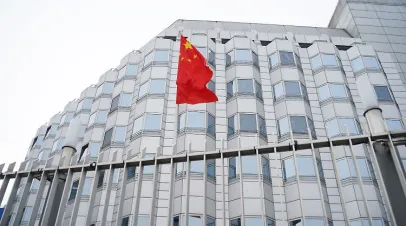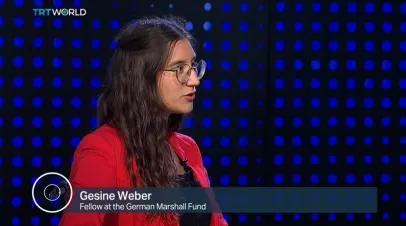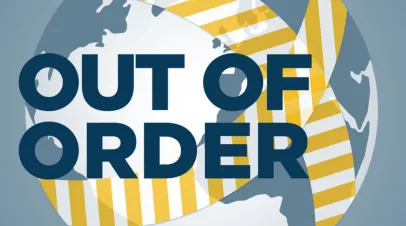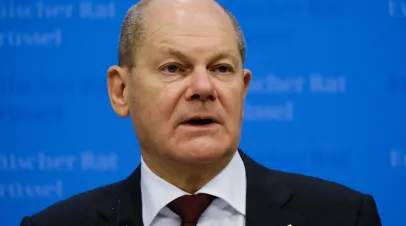Press
Read the latest news and commentary from the German Marshall Fund.
For press inquiries, please contact us by email at [email protected].
Or contact the press officers directly:
Chris Schaefer, Press Officer, at +1 202 642 7727 or [email protected]
Angelina Sutalo, Senior Press Officer, at +32 486 514 479 or [email protected].
For press inquiries, please contact us by email at [email protected].
Or contact the press officers directly:
Chris Schaefer, Press Officer, at +1 202 642 7727 or [email protected]
Angelina Sutalo, Senior Press Officer, at +32 486 514 479 or [email protected].
The Latest
The Latest
Search
241 Results for:
“ “FAU is aware that under these contracts CSC scholarship holders will be unable to fully exercise their academic freedom and freedom of expression as stipulated under German Basic Law,” the email said. Such wording in contracts “would be unthinkable in Germany, I don’t think you could have this kind of contract with any scholarship holder here”, Mareike Ohlberg, a senior fellow working on China at the German Marshall Fund think tank in Berlin, told University World News. “Some of the issues in the contract have caused some debate here in Germany. Universities have to ensure people can enjoy the rights they’re normally guaranteed in Germany, like anybody else, such as freedom of speech, freedom of expression,” she said. More German universities are expected to follow suit. But “it’s probably going to be a hard decision for most universities”, Ohlberg noted. [...] As indicated by FAU, the contract requires them to report back to the Chinese embassy on a regular basis, with violations of the conditions subject to disciplinary action. The contract also stipulated that they must return to China after their PhD and that the terms of the CSC contract only expired after two years of having returned home. According to Ohlberg, who has seen older versions of the CSC contract, if they are in breach, “[t]hey can technically be asked to repay the scholarship, plus some additional fee on top”. If the person breaks the contract, for example by staying abroad, and does not pay back the money, then the two people that are forced to remain in China would have to pay. “It also sends a political message, that also adds additional incentive and additional pressure on the person not to do anything that could be seen as breaking the contract,” Ohlberg said.”
“ THINK TANKERS TAKE: “The strategy sends a clear message that Germany’s approach to China has changed. China is now seen as more of a challenge and a threat than as an opportunity,” Noah Barkin, who focuses on China-EU relations at the German Marshall Fund of the United States, told Berlin Bulletin. He added: “The fact that the government has spelled this out in writing is important for the debate in Europe given the mixed signals that have been coming from Berlin.” But there are still open questions: The key issue is “implementation,” Barkin said. “The government is determined to reduce its dependencies on China and diversify to other markets. But will the German companies that are heavily dependent on China pay attention to this message?””
Image

April 17, 2023





